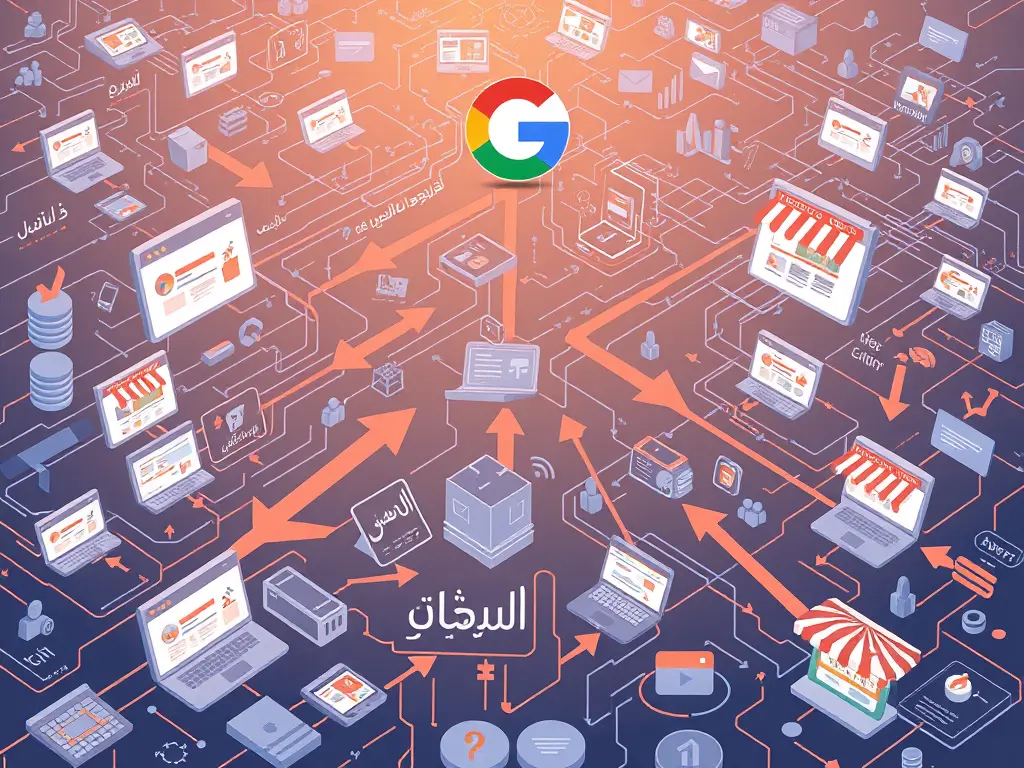In the ever-evolving world of digital marketing, Search Engine Optimization (SEO) is the backbone of online visibility. But Google, the biggest player in this arena, constantly updates its algorithms and policies. These updates can profoundly impact how websites and online shops rank. Understanding these changes and adapting to them is crucial not only for maintaining current position but also for growth and progress in the online space. Recently, Google has implemented significant changes that are particularly important for website and online shop owners, especially in regions with specific local languages and needs, such as Persian speakers. These changes range from improved support for the Persian language in translated results to updates in technical documentation and policies related to e-commerce content. The main question is: What do website and online shop owners need to know now to remain successful in this new SEO landscape? This article explores these key changes and provides practical guidance for website and online shop owners.
Improved Support for the Persian Language in Google Translated Results
One of the most significant pieces of news for Persian-speaking website and online shop owners is the addition of support for the Persian language in Google translated results. This update is part of Google’s effort to expand access to information for users worldwide, regardless of their language. Previously, Persian content might not have been displayed well or at all in translated results, which was a barrier for non-Persian-speaking users accessing this content. With this change, Google is now better able to understand Persian content and translate and display it for users searching in other languages. This means that websites and online shops with high-quality Persian content now have a greater opportunity to reach international audiences or users outside of Iran whose primary language is not Persian but are looking for relevant information or products. This not only increases potential traffic but also provides an opportunity for market expansion and brand recognition globally. To make the most of this feature, ensuring the high quality of Persian content and a proper website structure is essential.
Updates to Google’s Technical Documentation: What’s Important for Website and Online Shop Owners?
Google continuously updates its developer documentation to keep webmasters and developers informed about best practices and algorithm changes. Some recent documentation updates that are important for website and online shop owners include:
- Support for New IPTC Digital Source Type: Google now supports the IPTC NewsCode
compositeWithTrainedAlgorithmicMedia. This is more relevant for content publishers who use AI-generated or edited images. While it may not directly impact ranking, it signals Google’s attention to transparency regarding the origin of visual content. Website and online shop owners using AI-generated images for their products or articles should take note of this. - New Documentation for Merchant Return Policies and Loyalty Programs: Google has updated the documentation for return policies and loyalty programs and migrated the return policy section to a separate page. This is a crucial change for online shops. Providing clear and accessible information about return policies and loyalty programs is not only important for users, but Google is now paying more attention to it. Correctly using structured data to display this information in search results can help increase user trust and conversion rates. Online shop owners should review the new documentation and ensure they are providing information about their site correctly.
- Removal of Home Activity Documentation: Google has removed the documentation for home activity structured data because this feature no longer appears in Google Search results. This means that if you were previously using this type of structured data, you no longer need to and can remove the relevant code.
Policy Changes: Impact on Website and Online Shop Management
Google’s policies play a significant role in defining what is acceptable in the eyes of the search engine. One recent policy change Google has mentioned is the removal of the previous recommendation to use the robots.txt file to block automatically translated pages. This change was made to align with Google’s spam policy update in March 2024. Previously, some webmasters used robots.txt to prevent duplicate content issues arising from automatic translations. The removal of this recommendation suggests that Google now has a different approach to automatically translated content and may be better able to detect and manage it. However, this does not mean encouraging the widespread use of low-quality machine translation. Google still emphasizes high-quality, valuable content for the user. For website and online shop owners providing content in multiple languages, focusing on high-quality human translation or proper localization is still the best strategy. Using machine translations should be done with care and editing to ensure content quality and accuracy and avoid potential Google penalties. This policy change gives website and online shop owners more flexibility, but the responsibility of providing quality content in every language still rests with them.
The Increasing Importance of Content Localization, Especially for Online Shops
In a world of diverse languages and cultures, providing content that resonates with a local audience is vitally important. Google’s update regarding support for the Persian language in translated results is a big step in this direction, but it’s only one piece of the puzzle. True success in reaching local audiences, especially for online shops, lies in deeper content localization. Localization is not just about translating words; it involves adapting content to cultural differences, local idioms, currency units, and even writing styles that feel natural and appealing to the target audience. A recent case study published by Google showed how a video-on-demand platform significantly increased user engagement by providing more locally relevant content for Indonesian users through Google Search. This example emphasizes how much local and relevant content can impact SEO and user experience. For Persian-speaking website and online shop owners, this means paying special attention to details: Are technical terms or products translated into the appropriate local language and dialect? Are prices displayed in Rials or Tomans? Are local culture and customs observed in content and images? Successful localization can lead to increased time on site, reduced bounce rates, and ultimately higher conversion rates, all of which are positive signals for SEO. Therefore, investing in content localization is a critical long-term strategy for website and online shop owners.
Impact of Updates on Overall SEO Strategy for Website and Online Shop Owners
Given the recent changes, website and online shop owners must re-evaluate their SEO strategy. Simply focusing on keywords is no longer sufficient. SEO has moved increasingly towards providing the best user experience through high-quality, relevant, and accessible content in whatever language the user prefers. For online shop owners, this includes providing transparent information about products, prices, return and shipping policies in a language that is understandable and culturally appropriate for the audience. Correct use of structured data for products, reviews, and store information has become even more important. Also, with better support for the Persian language in translated results, new opportunities have emerged for targeting foreign markets or attracting non-Persian-speaking users. This might require creating a multilingual content strategy or at least ensuring that Persian content is understandable to machine translation tools. Furthermore, paying attention to Page Experience signals like site loading speed and mobile usability remains critical. Google is increasingly emphasizing how users interact with websites, and this includes websites and online shops in all languages. Therefore, a modern SEO strategy for website and online shop owners must include a combination of technical optimization, creating high-quality and localized content, and continuously improving the user experience.
The Future of SEO and the Roadmap for Website and Online Shop Owners
The SEO landscape is constantly changing, with artificial intelligence playing an increasing role. Google uses AI to better understand content and user intent, which means there is a need to produce content that is valuable and useful not only for search engines but also for humans. For website and online shop owners, this means focusing on creating in-depth, comprehensive, and authoritative content that answers user questions and addresses their needs. With the growth of e-commerce, online shop SEO has also become more complex. Intense competition, the need to display products attractively and provide complete information about them, and managing reviews are all part of the challenges of e-commerce SEO. Using SEO tools like Yoast SEO (which also supports the Persian language and receives regular updates) can help website and online shop owners manage the technical aspects of SEO and get guidance on content. The future of SEO will likely see a greater emphasis on voice search, image search, and personalized user experience. Website and online shop owners must be prepared to embrace these trends and optimize their websites for them. The roadmap for success for website and online shop owners includes continuous learning, testing and measuring results, and flexibility in adapting to Google’s changes. Ultimately, the main goal of SEO should always be to provide the best answer or product to the user at the right time, and this principle remains constant in every Google update.
Conclusion: Adaptability is Key to Success for Website and Online Shop Owners
As we have seen, the SEO landscape is changing with continuous Google updates. From improved support for the Persian language in translated results and technical documentation updates to changes in policies and the increasing emphasis on content localization, each of these changes has specific implications for website and online shop owners. To succeed in this dynamic environment, adaptability is not just an option but a necessity. Website and online shop owners must:
- Understand the importance of improved support for the Persian language and benefit from it by producing high-quality Persian content.
- Stay informed about Google’s technical documentation updates, especially regarding return policies and loyalty programs, and implement the relevant information correctly.
- Understand the new Google policies and ensure content localization is done correctly and with high quality.
- Re-evaluate their SEO strategy focusing on user experience, deeper localization, and correct use of structured data.
- Prepare for future SEO trends like voice and image search and emphasize continuous learning.
Ultimately, success in modern SEO for website and online shop owners depends on focusing on providing real value to users through quality content, excellent user experience, and adherence to Google’s guidelines. Indeed: SEO has changed forever, and only those who are ready to learn and adapt will succeed. Take action, analyze your website or online shop, and implement new strategies to stay ahead in this competitive world.






